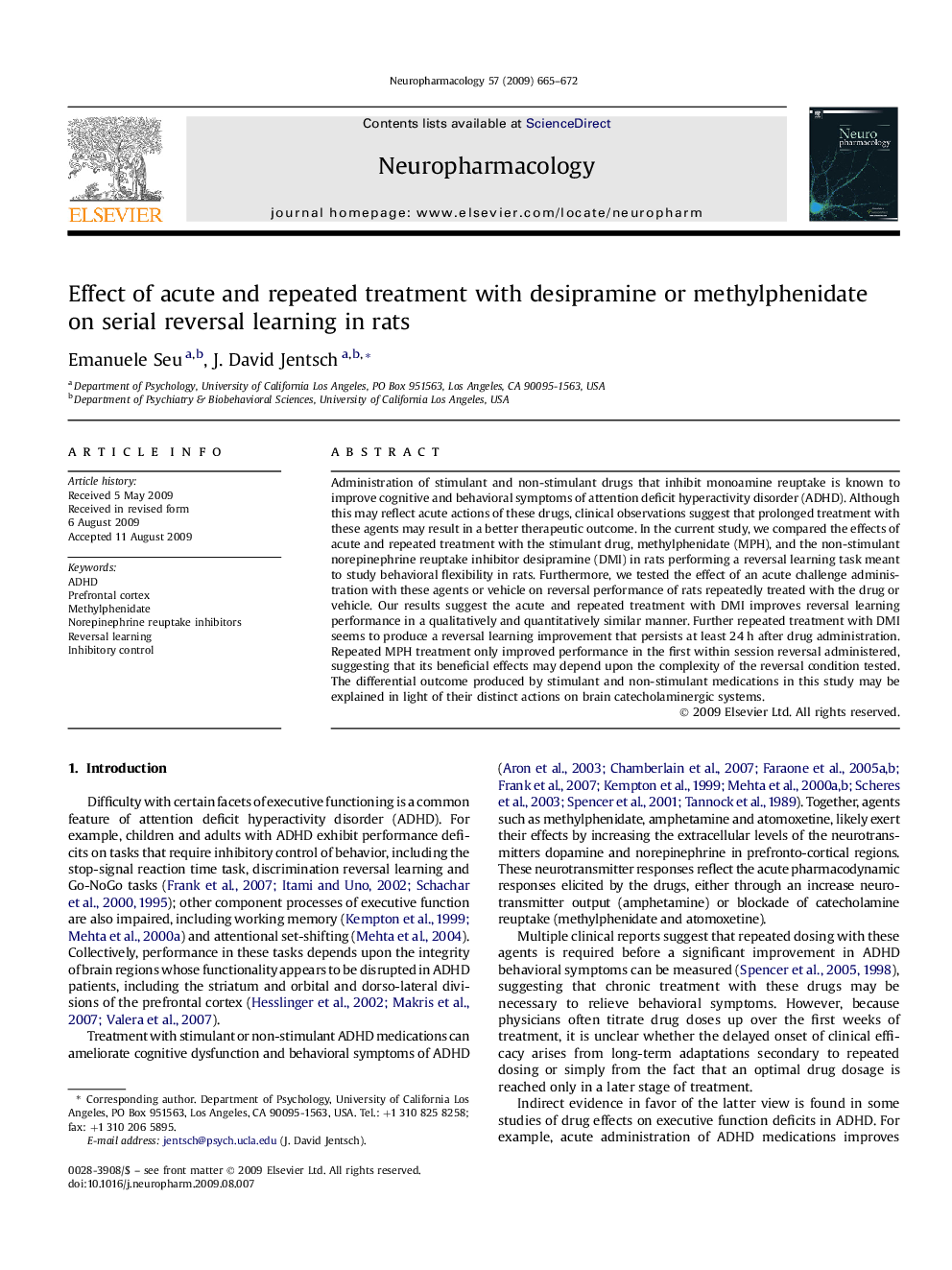| Article ID | Journal | Published Year | Pages | File Type |
|---|---|---|---|---|
| 2494352 | Neuropharmacology | 2009 | 8 Pages |
Administration of stimulant and non-stimulant drugs that inhibit monoamine reuptake is known to improve cognitive and behavioral symptoms of attention deficit hyperactivity disorder (ADHD). Although this may reflect acute actions of these drugs, clinical observations suggest that prolonged treatment with these agents may result in a better therapeutic outcome. In the current study, we compared the effects of acute and repeated treatment with the stimulant drug, methylphenidate (MPH), and the non-stimulant norepinephrine reuptake inhibitor desipramine (DMI) in rats performing a reversal learning task meant to study behavioral flexibility in rats. Furthermore, we tested the effect of an acute challenge administration with these agents or vehicle on reversal performance of rats repeatedly treated with the drug or vehicle. Our results suggest the acute and repeated treatment with DMI improves reversal learning performance in a qualitatively and quantitatively similar manner. Further repeated treatment with DMI seems to produce a reversal learning improvement that persists at least 24 h after drug administration. Repeated MPH treatment only improved performance in the first within session reversal administered, suggesting that its beneficial effects may depend upon the complexity of the reversal condition tested. The differential outcome produced by stimulant and non-stimulant medications in this study may be explained in light of their distinct actions on brain catecholaminergic systems.
